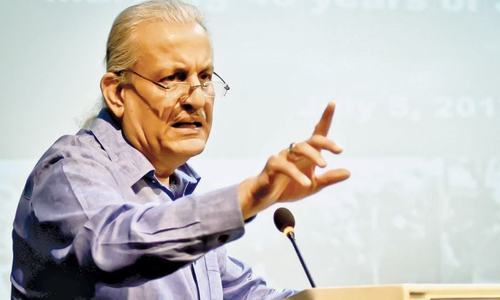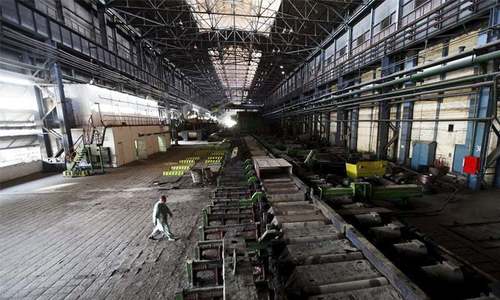THE move was not unexpected. The government had made clear its intentions of sacking over 9,300 remaining employees of the Pakistan Steel Mills in June — despite all the pre-election promises of the PTI to revive the entity with the help of the existing workforce and through improvements in the company’s management.
Friday’s service termination orders to 4,544 PSM workers indicates just the start of the implementation of a new government plan to ‘reform and restructure’ SOEs in order to cut financial losses. The remaining workers will be sent home in the next few months if everything goes according to script. What will follow is the ‘downsizing’ or ‘rightsizing’ of staff in other public-sector businesses such as PIA. At least half of the workers of the national flag carrier face the prospect of losing their jobs in the near future.
All this is in line with the recommendations made by the reforms committee headed by Adviser to the Prime Minister on Institutional Reforms and Austerity Ishrat Husain to reorganise state-run businesses before they are sold to the private sector, or revived under public-private partnership by hiring ‘competent’ overseas Pakistanis in key managerial positions, or through infusing new capital in their operations.
Most public-sector businesses have become a huge financial liability for the cash-strapped government, which is forced to spend billions of rupees every year to keep them operational as is the case with PIA and the railways and to pay workers’ salaries at PSM. The argument for the need to cut down on the number of excess staff in SOEs, who are often recruited because of political and other reasons, may have some merit, but the question remains: is it right to abolish jobs in the public sector at a time when the government and the State Bank have doled out subsidised, soft loans amounting to billions of rupees to help private businesses maintain their payroll in view of the Covid-19 crisis? Even some of those inside the power circles will disagree with such arbitrary removals when the working classes are struggling to cope with the harsh economic situation caused by the pandemic.
With Covid-19 infections resurging and the fragile economic recovery facing serious risks, there could not have been a worse time to sack the PSM workers. Indeed, the move is an admission of the government’s own failure; like its predecessors, it has been unable to devise a viable programme to resurrect the country’s largest industrial enterprise at a time when the private sector is investing in new steel manufacturing capacities and technologies to take advantage of growing domestic needs amid rising steel demand. Had it taken timely action to restart production at the mill, perhaps through the infusion of capital, it could have saved a national asset and spared thousands of PSM workers the agony of losing their jobs.
Published in Dawn, November 29th, 2020















































